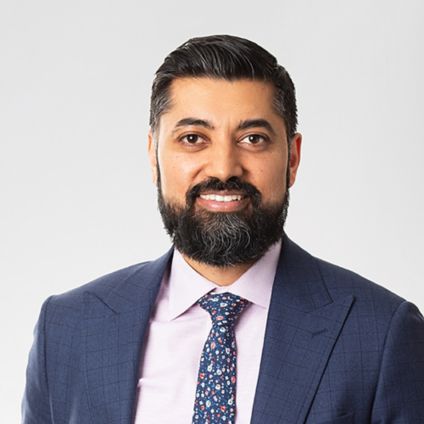Call it the Goldilocks dilemma.
In my work with families, I often hear the same concern: How do we raise stewards, not spenders? Families fear that leaving too much wealth may foster entitlement, while leaving too little might breed resentment or financial insecurity. Finding the “just right” balance takes more than financial planning—it requires preparing heirs to be responsible, resilient and values-driven.
A recent episode of a popular financial advice show perfectly captured this dilemma. A caller named “John” shared that he’d won $22 million in the lottery. He and his wife decided to keep their winnings under wraps to avoid the trap of people expecting handouts—they hadn’t even told their two teenage children.
“I don’t want them to grow up to be waiters—waiting for us to die so they can get our money,” John joked. To my surprise, the experts agreed, saying they wouldn’t tell their children either and thought John was doing them a favour by encouraging them to pursue their own paths.
This inclination to preserve wealth by hiding it reflects a deeper concern, one that’s equally relevant to those who have built their wealth over a lifetime.
But here’s the paradox: avoiding the conversation entirely can also create problems.
The risk of silence
A few years ago, I worked with an accomplished entrepreneur—I’ll call him “Mr. D.” After arriving in Canada with nothing but a couple of suitcases and a dream, Mr. D. had built a highly successful company and amassed wealth far beyond his expectations. While his wife and adult children obviously knew they were well off, Mr. D. hadn’t disclosed the full extent of their wealth. He wanted his family to be grounded in values like hard work, perseverance and personal achievement.
His fear of creating entitlement and impulsive spending was about protecting those values and preserving the family legacy. But his secrecy was creating another problem—one he couldn’t see.
As Mr. D’s advisor, I explained the fundamental risk: if his wife and children, who were named as executors and trustees, weren’t aware of the family’s full financial picture—investments, trusts, insurance and the ecosystem of advisors that supported it—they would be unprepared to take on this responsibility and manage the wealth in the way he had planned.
Mr. D.’s lack of transparency was unintentionally setting up his heirs for failure.
For the next generation to effectively carry the wealth forward, they must be involved early and often. Without understanding the structures and resources available to them, even the best intentions can crumble under the weight of confusion and unpreparedness.
Building responsible stewards: Practical measures
So, how do you raise children to be stewards instead of spenders? While transparency is necessary, it’s insufficient. Successful wealth transfer requires a structured approach that combines financial education, governance and emotional resilience.
Here’s what I recommend:
Family meetings: Family meetings are intentional gatherings where family members come together to discuss shared values, goals and future aspirations. The objective is to establish a shared narrative that aligns purpose and values across generations.
They should be regularly scheduled. Whether quarterly or annually, the key is consistency. Create a simple agenda. While formal topics can include governance or financial updates, leave room for connection and fun—after all, you want the family members to show up! You’ll also want to encourage participation. Rotate planning duties or include activities that everyone enjoys.
One family I work with holds an annual “Family Fun Day” at their summer cabin. No business is discussed—just games, cooking competitions and outdoor activities. These light-hearted gatherings have become a cherished tradition that strengthens family bonds and builds trust, making it easier to discuss more formal matters during other meetings throughout the year.
Modelling behaviour: The saying “values are caught, not taught” holds true. Family members, regardless of age, learn more from action than from words.
Here, too, consistency matters. Ensure your actions reflect your stated values—whether related to business, ethics or daily interactions. That should include involving heirs in decision making, letting them observe, participate and ask questions about the choices being made. Along the way, you should also provide mentorship opportunities, for instance pairing younger family members with trusted advisors or experienced family members to cultivate practical skills.
Another family I work with has a longstanding tradition of giving back. Every Sunday, all three generations come together to buy food and deliver it directly to a local homeless shelter. This consistent, hands-on approach reinforces the family’s values of generosity and compassion, while providing younger members with a tangible way to connect wealth with purpose and community.
Financial literacy: Preparing heirs to manage wealth requires building practical skills, not just imparting knowledge. This can involve such concrete actions as:
- Letting heirs manage small investment portfolios under mentorship
- Teaching children budgeting, saving, investing and goal-setting
- Inviting heirs to observe meetings with advisors or wealth managers.
Several families I work with establish “learning portfolios,” where teenagers are given a modest sum to manage with guidance from mentors. They track performance, make investment decisions and present quarterly reports to the family. This process develops financial acumen, accountability and decision-making skills.
How will you know if your efforts have paid off?
Raising a steward is not about immediate outcomes; it’s about instilling a long-term mindset that treats family wealth as a treasured resource to be managed and preserved.
True success is evident when heirs embrace a stewardship mindset: recognizing that wealth can—and should—be enjoyed but also sustained for future generations. It’s about prioritizing long-term value over short-term gratification.
Ultimately, raising a steward goes beyond teaching financial management. It’s about passing down a legacy of responsibility, care and purpose—one they will carry forward with the right foundation to sustain it.


